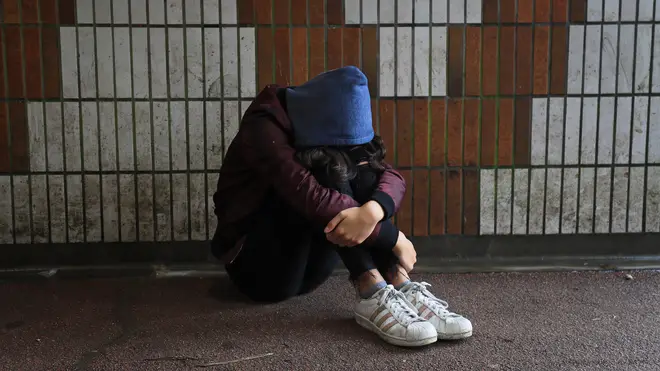
Clive Bull 1am - 4am
17 June 2021, 00:04

Baroness Diana Barran said the UK is at a ‘critical stage’ in tackling loneliness.
Talking about loneliness can be a “healing act”, the Government’s minister for loneliness has said as she urged people not to forget that others may be struggling as society rebuilds from the pandemic.
Baroness Diana Barran said loneliness “is unquestionably a major public health challenge” and that the lockdowns have shown people “how important our connections are to us”.
The UK is at a “critical stage” in tackling loneliness, she said, adding that it is important people do not make assumptions as there are a “whole lot of people who we might not expect to be struggling”.
As part of its #LetsTalkLoneliness campaign, the Government is urging everyone to check in with friends, family and neighbours, asking how they feel about getting out and about again.
#LonelinessAwarenessWeek feels different this year. Many people are so generous in supporting friends + neighbours, and but sadly for many their lives have been impacted by Covid in a way that makes loneliness much worse. So do share what has helped *you* stay connected -Thanks
— Diana Barran (@dianabarran) June 14, 2021
People can also help out through volunteering locally or by offering regular conversation to someone who is feeling isolated.
Baroness Barran told the PA news agency: “In the last year almost every one of us has either experienced loneliness ourselves or we’ve felt worried about somebody we care about who has been lonely.
“As we emerge from the pandemic, there are people who are bouncing out and delighted to be able to socialise again, and there are others who’ve been, you know, hit very personally either through bereavement, or maybe have lost their job, or, you know, have been lonely for many years and continue to be so.
“So I think the key thing as we emerge is, of course… we welcome and encourage those people who can re-emerge easily but that we don’t forget those who might be struggling, and that we channel some of the incredible generosity that we’ve seen over the last year in terms of formal and informal volunteering to make sure that our communities emerge stronger from this than we went into it.”
Baroness Barran said research suggests that young people are disproportionately affected by loneliness, while people with disabilities and long-term health conditions and carers may have felt particularly isolated over the past 15 months.
She said life’s transition points can also trigger loneliness, such as people losing a loved one or having a baby.
She continued: “I think it’s really important not to make assumptions about people, and certainly my experience has been if you’re prepared to admit that you felt a bit vulnerable yourself, it’s extraordinary how it sort of gives permission to other people to admit how they’re feeling too, and we also know from the research that just talking about loneliness actually helps, is a kind of healing act in and of itself, so that is to be encouraged.”
She was speaking to mark Loneliness Awareness Week, which will see a series of initiatives launched through the Tackling Loneliness Network, comprising more than 70 organisations.
It’s as important as ever to take action if you or someone you know is feeling lonely. #LetsTalkLoneliness this #LonelinessAwarenessWeek
▶️ https://t.co/4aU0C4ULTz pic.twitter.com/AgXa3CX3oe
— DCMS (@DCMS) June 15, 2021
These include the Connection Coalition’s new Loneliness Advice chatbot service on WhatsApp, where from Thursday people can message 07902 922 908 and be presented with resources from organisations including the Jo Cox Foundation, Age UK and the British Red Cross.
In addition, every letter posted this week will feature the Royal Mail’s #LetsTalkLoneliness stamp, and the BT Tower in central London will display tips on how to alleviate loneliness.
And TikTok is launching a new challenge, encouraging users to talk openly about their experiences with loneliness and their favourite ways to help others.
Rich Waterworth, general manager of TikTok EU & UK, said: “TikTok is built on the idea of community, and that whatever passion you have, whether it’s reading or cooking, DIY or skydiving, you will find a community on TikTok.
“That shared enjoyment and feeling of connection is one of the most powerful tools in the fight against loneliness.
“I am incredibly proud that TikTok has been able to support #LetsTalkLoneliness and that our community has come together to share their own stories, provide advice and offer connection.
“I hope that will inspire others to take action to help someone they know feel a little less lonely at what we know continues to be a difficult time for everyone.”
It was announced on Wednesday that a further £2 million will be made available to grassroots charities and groups in England that are tackling loneliness.
From June 28, groups will be able to apply for a share of the second round of the Local Connections Fund, a joint £4 million programme from the Department for Digital, Culture, Media & Sport (DCMS) and the National Lottery Community Fund.